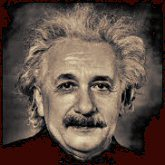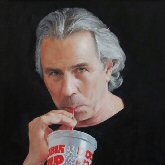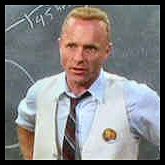The Story of Ray Markman – Part 4
by John Jonelis
Friday, 2:30 pm
We’re sitting across my battered WWII Air Force desk digging out the history of Ray Markman. Alexander Harbinger’s argument that Ray isn’t a pure entrepreneur seems pretty well shot to pieces. Loop Lonagan told some amazing stories about risk ventures and I think Alex is squirming a bit, but I want to hear what he’s turned up before these two beat each other senseless at the duel scheduled for five o’clock today. So I put it to him.
“Yess,” he says. “I did find quite ze important story about Mr. Markman. To me, it iss poignant und highly significant. It illustrates not only his personality but ze way he affected people around him.”
He pauses, and I think he does it for effect. Harbinger is still 100% university professor but he’s reverting to his thick German accent. That’s a signal he’s passionate about what he’s saying.
“Markman wass very young und yearning to work at ze premier advertising agency, Leo Burnett. Ziss vass when Leo ran ze agency personally. He created fantastic campaigns—Marlboro, Pillsbury, Jolly Green Giant. But when Markman attempted to, as you Americans say, ‘get in ze door,’ he vass told to first learn brand management.”
Lonagan is drumming his fingers on the desk, but Harbinger ignores it and continues.
“So Mr. Markman made…What iss word…” He pauses and raps my desk with his big knuckles. “He make ‘cold call,’ He approach a large cosmetics company, Helene Curtis. It wass what people call ‘a hot company’ at ze time, marketing exclusively to beauty salons—but just starting in retail. As so often occurs, organization vass insufficient for new market. It used a prototypical model but no brand managers. Markman called on CEO of consumer goods, und convinced him of brand manager system. Right away, ze man hired him.”
I interrupt: “What exactly is a brand manager, Alex?”
“He iss one with final sales und profit responsibility for a particular brand. It iss analogous to account executive at an advertising agency.”
I nod and he goes on.
“Ze concept of a brand manager originated at P&G und Mr. Markman read every Harvard Business Review article on brand management going back to 1920.” Harbinger stops to sip his scotch. “He decides to start by selling—to learn ze business from deep in trenches. He also knows he must impress sales manager if he iss to gain acceptance within company culture. He worked tirelessly for a month, from store opening to store closing. It vass only a month so he poured himself into his work. And he broke all company sales records.”
Now Harbinger is actually smiling. “Und he did impress ziss sales manager. He wanted to hire Markman but no—he vass slated to be brand manager. Mr. Markman then hired other brand managers. He formed department und became head of it.”
Lonagan is still drumming his fingers and it’s getting on my nerves. “What’s your problem, Loop?”
“No problem. Ain’t you bored?”
“No.”
Harbinger is suddenly agitated. “I get to ze point. As you know, Mr. Markman hass always been a man with many ideas und he proposes one campaign after another to his new employer. I have no data to explain reasons but his superior denied—he denied perhaps all of his proposals. I am told, ‘he svatted ze ideas like flies.’”
Harbinger places a sheet from his notes on the desk. It tells the story of a meeting between Markman and his boss. The highlighted sentence reads, ‘Ray, this has got your thumb prints all over it.’ Harbinger clears his throat. “Certainly it casts doubt on his quote, ‘I never worked a day in my life.’”
“Bullshit,” Lonagan snaps.
I narrow my eyes at him. “What’s wrong with it, Loop?”
Lonagan throws out an arm in an expansive gesture. “Ray’s still dreamin’ dreams. He just ain’t gettin’ as many of ‘em done. It’s a bigger challenge, is all.”
Harbinger doesn’t even acknowledge Lonagan. “Important part of ze story vass when Markman met head of company’s outside advertising agency. Ze man was only twenty-nine, but brilliant. A Northwestern MBA.” He pauses, I think for effect again. “Of course, Mr. Markman earned his MBA from University of Chicago, both very prestigious schools but ze men got along famously anyway. Then later this man went on to successful career—many highly important positions in private enterprise und public service.”
Lonagan’s ears are turning red again. “What’s that got to do with anything?”
“Just let him tell his story, Loop.”
Alex draws himself tall in his chair. “I can answer Mr. Lonagan’s question. Mr. Markman came to know many important persons in his life. I believe ziss vass crucial to his success. I believe it stemmed from his personal gestalt.”
“His what?”
“His…how you say…his overall manufacture.”
Lonagan grins. “Y’mean it comes natural to ‘im. Just happens that way. It’s how he’s made.”
Harbinger lets out a lungful of air. “Yes. Dot is ze vey of it.”
“Then why don’t you just say so?”
“Zat is vat I did!” Anger tints his voice and it’s time for me to intervene.
“Why don’t you two save it for the boxing ring? I want to hear Alex’s story. Don’t you want to hear it, Loop?”
Lonagan draws circles on the scarred desktop with a finger. “I suppose.”
“Then shuttup. Go on with your account, Alex.”
Harbinger clears his throat before continuing. “Markman immediately liked CEO of outside agency und two men they make what iss called ‘a pact.’ Markman gives him exclusive responsibility for company advertising account. In exchange, no one comes between them. No one! Und ziss relationship works well for quite some time. Ziss young advertising executive presents many ideas to Mr. Markman’s superior—und they are many of Markman’s own ideas, presented as if coming from ze outside agency—but now they are received with enthusiasm rather than rejection. At same time ziss young man vass, as you say, ‘taking Ray to school,’ und young Mr. Markman learned all about advertising business very quickly.”
Harbinger leans forward in his chair. “But ziss could not continue indefinitely. Mr. Markman’s outside counterpart vass asked to run an important political campaign und he accepted. Of course, ze advertising arrangement fell apart.
“Now vee come to truly fascinating set of events: Markman resigns from Helene Curtis. His superior—ze ‘tough guy’ as you Americans say—ze man who crushed so many proposals—he wass entirely overcome by loss. I am told he actually showed tears in his eyes!” Harbinger looks at Lonagan and back to me. “Mr. Markman did not know what to make of such behavior! You see ze irony?”
I notice Lonagan’s attention is now riveted on Harbinger. He makes as if to say something then holds back when Harbinger abruptly resumes.
“I believe zat I understand Mr. Markman’s superior. He sees Ray as his protégé. He feels betrayed by ze resignation. But he did not treat his employee as he should have treated him. That vass his mistake! Ze same mistake so many of us make! So common in my country! I find zis not only startling but also personally meaningful. It iss very sad because it iss so pervasive—almost universal.”
Lonagan slowly nods. “I can picture that.”
I lean back, sip my scotch, and consider. And I’m struck by the conflicted ways we so often go about our business.
Harbinger smiles. “Ah, but remainder of story: Notice—Mr. Markman learned all about brand management. He groomed himself for position he vanted so badly at Leo Burnett. He vass ready to go to work for ze premier agency…”
Comment on this article — Name and email optional
Find Chicago Venture Magazine at www.ChicagoVentureMagazine.com Comments and re-posts are welcomed and encouraged. This is not investment advice – do your own due diligence. I cannot guarantee accuracy but I give you my best.
Copyright © 2012 John Jonelis – All Rights Reserved





















































































































































































Pingback: STARTING COMPANIES WITH STYLE | The Gamemaker's Father